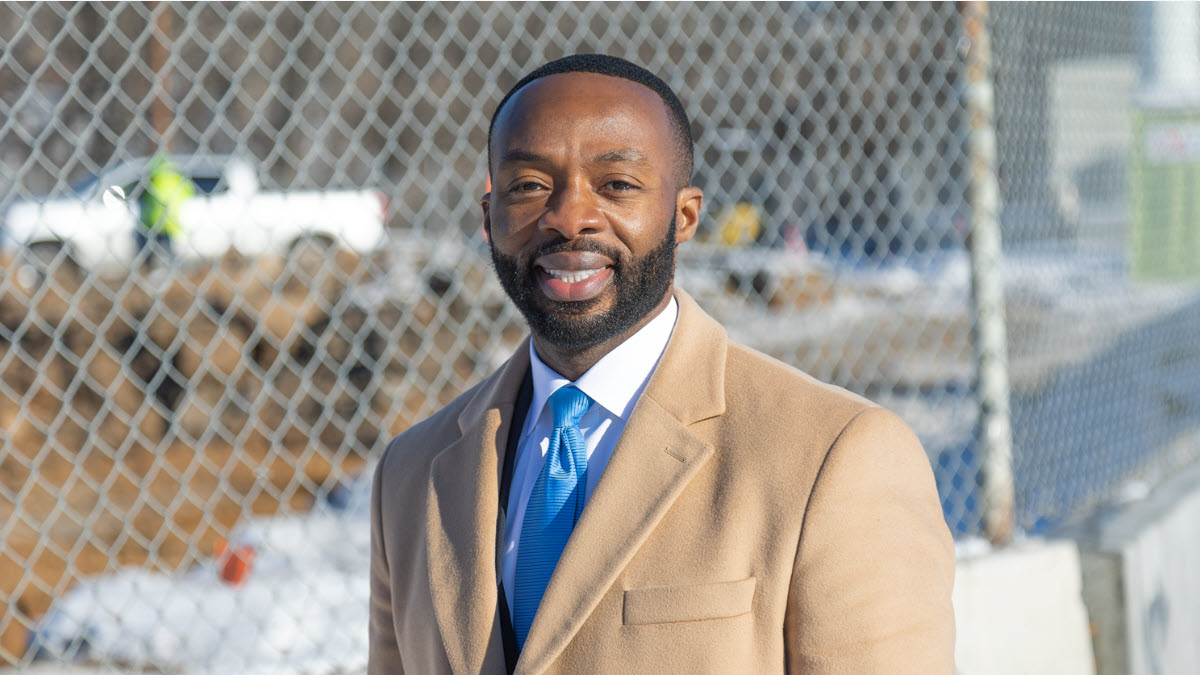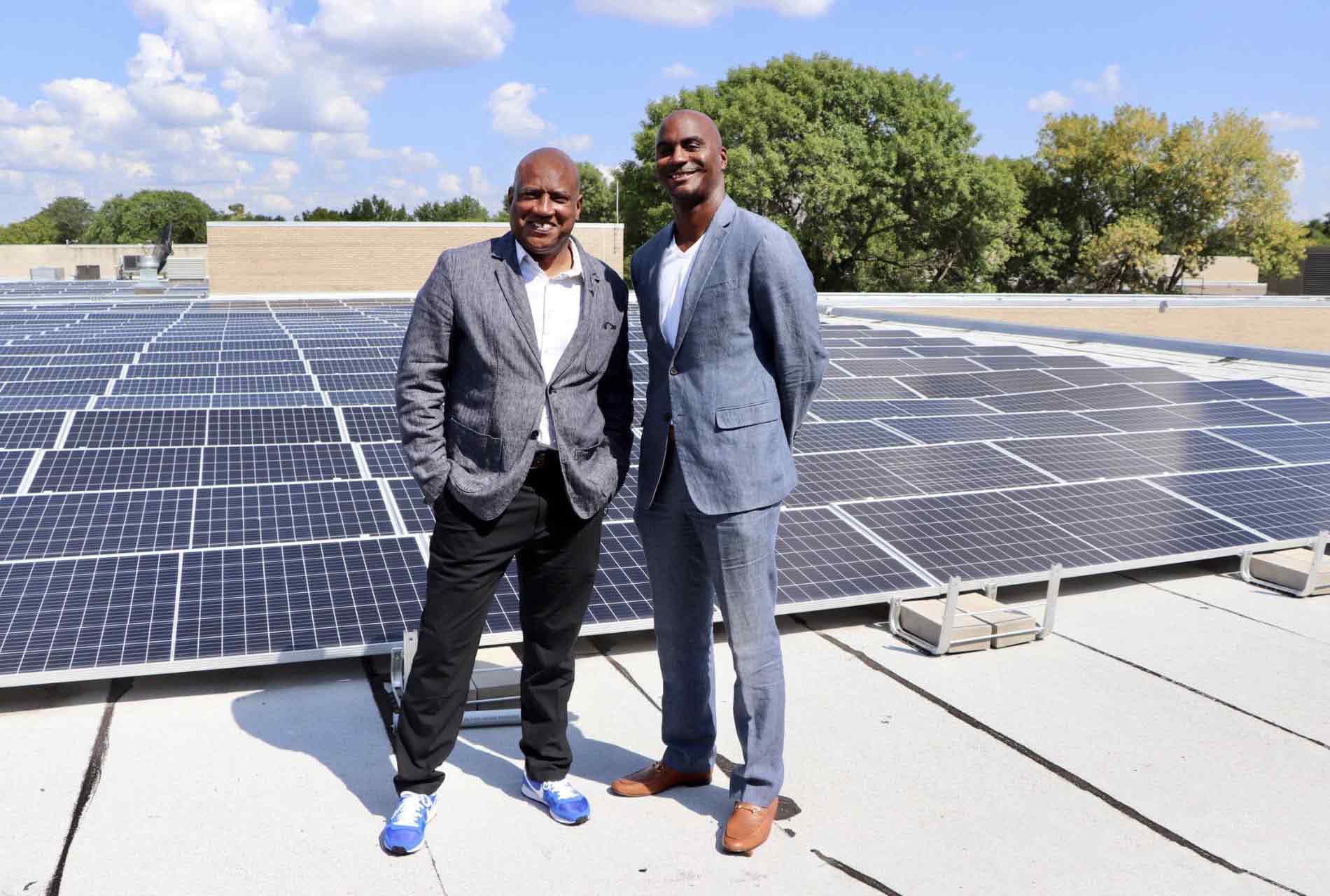Stories
Investing in Black leaders to create lasting change

Being intentional is part of U.S. Bancorp Community Development Corporation's commitment to more equitable community development and increasing capital to historically underserved communities.
Helping Black business owners succeed is one way to address racial wealth disparities. And successful Black business owners then help strengthen and lift their communities, which multiplies the impact.
It’s why U.S. Bancorp Community Development Corporation (USBCDC), the community investment and tax credit division of U.S. Bank, is intentional about the projects it invests in and the partners it works with, working to expand relationships and invest in projects with more Black developers.
“Developers who represent the communities being served are in a position to better serve those communities. They have a seat at the table, provide an important voice, and can help drive the agenda and changes the community wants to see,” said Zack Boyers, USBCDC’s president and chief executive officer. “It can have a direct impact on building wealth and financial inclusion for those communities.”
Being intentional is part of USBCDC’s commitment to more equitable community development and increasing capital to historically underserved communities. It also supports U.S. Bank Access Commitment™ – a long-term framework for building wealth and leveraging our unique skillset as a bank to help close the racial wealth gap, whether through career development, community partnerships, small business support or homeownership education.
Here are three Black-led projects in the Twin Cities making an impact. U.S. Bank is proud to be a tax credit investor in all three.
The Hollows: New, affordable housing coming to St. Paul
No one is more surprised to be developing affordable housing in his hometown of St. Paul than Johnny Opara.
A few years ago, he was looking to make a change from a successful career in sales. He obtained his real estate license, but it was a commitment to his father that pointed him down the path to affordable housing development. His father suffered long-term health effects from a stroke and lived in various affordable housing – some complexes nicer than others.
“As primary caregiver I wanted to make sure my father was in the best possible situation and I said, I’m going to build you something,” Opara said. Although his dad passed away in 2018, Opara is keeping that commitment.
Now, he’s running JO Companies and developing The Hollows – a four-story, 62-unit affordable housing project in the Swede Hollow neighborhood of St. Paul. It will feature studio, one- and two-bedroom units along with a community room, business and fitness centers.
The location, vacant since 1996, is a site Opara knows well. Born in Nigeria, he moved to St. Paul and has been there ever since – his childhood home is on Rice Street, he attended college and has grown his career in the city. The Hollows pays homage to his community.
“It’s really going to be transformative overall for the city of St. Paul and the greater East side. It’s market rate in design but reflecting the economics of the community,” Opara said. “The Swede Hollow community is an amazing melting pot. So many immigrants and different folks come here to make a life for themselves.”
Opara credits his mentors in St. Paul and the LISC Twin Cities' Developers of Color Capacity Building Initiative, a St. Paul-based career acceleration program, for getting him to this point, as well as the City of St. Paul, which supported him early on and provided tax-exempt bonds and tax increment financing. He also speaks highly of his lender, Redstone and U.S. Bank, which invested $7.6 million in Low Income Housing Tax Credit equity.
“Taking a risk on first time developer says a lot about character and about changing the narrative - what does development look like from a people perspective. It’s opened a lot of doors having a big bank like U.S. Bank involved,” Opara said.
The Hollows is set for completion in early 2023. Because Opara’s sales background has him used to forecasting, he’s also thinking about what’s next. JO Companies is also working on Wangstad Commons, a multifamily development along the rail line in Brooklyn Center. It will include affordable units with a preference for people living with disabilities – another nod to his dad and the health issues he lived with for so long.
Regional Acceleration Center: Maintaining an important community hub
An important anchor in the North Minneapolis community is back on solid footing thanks to two tenants who joined forces to purchase the Regional Acceleration Center (RAC).
The $34 million five-story office/retail building at Plymouth and Penn was completed in 2018, an important catalyst for neighborhood development in the heart of a Black community. But when its developer hit financial problems within a year of opening, the center’s future was in question. That’s when David McGee, executive director of Build Wealth and Rev. Alfred Babington-Johnson, CEO of Stairstep Foundation joined forces to purchase the building.
“We really wanted to see the original vision of a regional acceleration center for this community to stay in place,” McGee said. Build Wealth was already a tenant and soon, Babington-Johnson moved his Stairstep Foundation in as well.
The two men formed Ground Floor LLC and made an offer. In the meantime, the building was in receivership, available to the highest bidder.
“It was by God’s grace and his vision that the offer we made was really the best offer to fulfill the dream of the building.” Babington-Johnson said.
USBCDC – an original investor when the RAC was built – restructured its original $3.4 million New Markets Tax Credit equity investment and waived default interest payments to help close the deal. The sale closed in December.
McGee is a banker and financial adviser whose passion for mentoring minority employees led him to start Build Wealth. The nonprofit empowers wealth building by helping its clients – mostly people of color from the surrounding neighborhood – build financial literacy, develop budgets, clean up credit issues and other support to turn them into homeowners.
Stairstep Foundation facilitates the largest ecumenical collaboration of African American churches in the state of Minnesota, focused on addressing some of the persistent challenges facing the community, and specifically, disaffected youth. Initiatives focus on everything from economic opportunity to GED attainment to boosting access to grief, trauma and mental health support.
The RAC is also home to several other community-focused organizations. That includes minority business lender and CDFI Metropolitan Economic Development Association (Meda) and Summit Academy, which provides workforce education; its IT program is based there. Target Corporation also leases space. The top floor and a portion of the parking garage are owned by Hennepin County and house a NorthPoint Health and Wellness clinic.
“We wanted to get the building back and reclaim the narrative,” Babington-Johnson said.
Renewable Energy Partners: Supporting climate equity
Jamez Jamez Staples is using his experience and expertise in the solar industry to make a difference in North Minneapolis – the community where he was raised and continues to call home.
As the owner of Renewable Energy Partners and the only Black solar developer in Minnesota, Staples is committed to doing all he can to ensure equity as more people transition to clean energy. He’s starting at home – through the solar projects he installs and development of a job training center in the community to help prepare local residents for jobs in this growing industry.
“We can address poverty and climate change together, but we have to be intentional,” said Staples, who took this message all the way to COP26, the United Nations climate conference in Glasgow, Scotland last November, where he met with industry leaders. “That was the purpose of me going, to say to leaders: ‘We need to make sure the people who are most impacted, the people feeling climate change most, have opportunities to address issues in their own community.’”
USBCDC invested nearly $400,000 in Renewable Energy Tax Credit equity two North Minneapolis projects Renewable Energy Partners has installed – rooftop solar gardens at North Community High School and Emerge Second Chance Recycling facility – both providing local, equitable access to clean energy in the low-income community.
“This project is a great example that combines our expertise in renewable energy finance with a commitment to environmental justice,” said Jon Peeples, USBCDC’s Environmental Finance director of business development. “It will take an intentional focus to ensure the benefits of an energy transition are shared equitably – including the companies involved and the communities served.”
Power from the North High School project will be sold to the city of Minneapolis and Minneapolis Public Schools, while also reserving up to 80% of energy subscriptions for low-income households in the community. The solar garden at Emerge – a mattress recycling operation that employs individuals overcoming barriers to re-entering the workforce – is in partnership with Minneapolis Climate Action. In addition to supporting the facility’s own energy needs, it’s expected to provide bill credits for the clean, inexpensive power to about 100 local households.
Staples is also focused on career training through his Regional Apprenticeship Training Center. He purchased a vacant building at 1200 Plymouth Avenue in 2017 with a vision to help bring needed job training to the community, preparing them for jobs in growing energy-related industries. Although still being built out, programming is already being offered at the center through the city of Minneapolis and Minnesota STEM Partnership. The facility features its own rooftop solar arrays and a battery system in partnership with University of Minnesota, heat pump system that is putting the gas utility on standby, electric vehicle charging stations and a storm water management system that manages all of the site’s rainfall. All technologies will be used to provides hands-on learning related to sustainability careers
“I’m born and raised in this community,” Staples said. “There are a lot of people out here working, but I just want to see better results. You can pursue opportunities solely for yourself. You can pursue opportunities explicitly for others. And you can marry the two.”
To learn more about our companywide efforts, visit usbank.com/diversity.

Media center
Press contact information, latest news and more
Learn more
Company facts, history, leadership and more
Work for U.S. Bank
Explore job opportunities based on your skills and location
